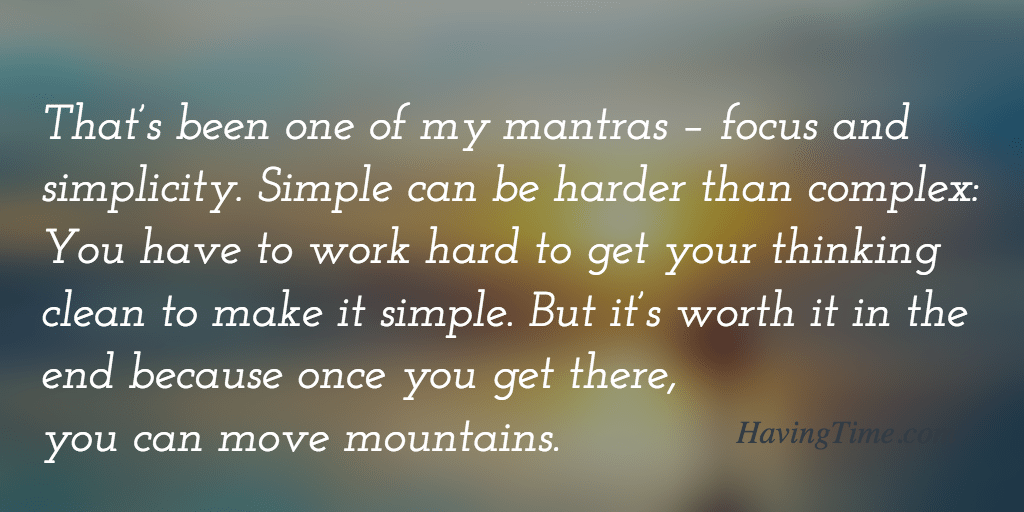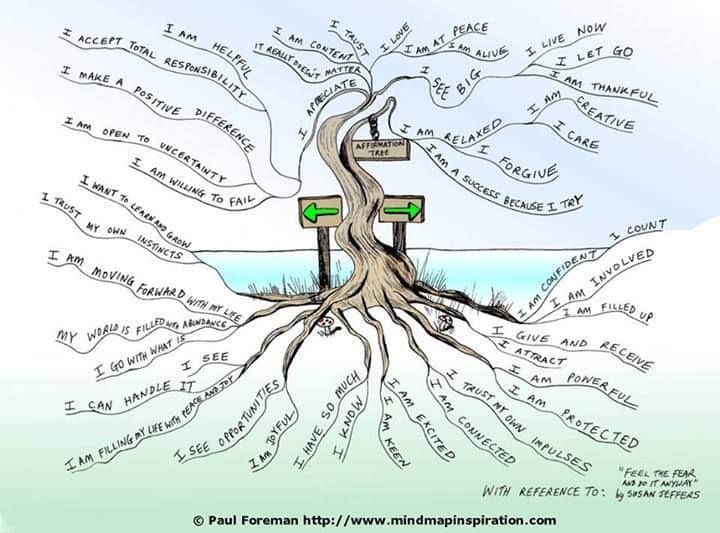
“All that we are is the result of what we have thought. The mind is everything. What we think we become.” – Buddha
The idea of positive self-talk and the declarative statements that many people call “affirmations” have been around for a long time. Maybe you’ve even tried them yourself, but without much luck.
I was in the same boat until recently, when I discovered one imperative wrinkle in the practice that changed everything for me (including my life). What I didn’t understand before was this: The key to an effective affirmation – or what I like to call a mantra – is not the words themselves, but how they make you feel. To be effective, a mantra has to make you feel good when you say it.
How to Use Mantras Effectively to Change Your Life
With old-school affirmations, we were told to boldly state exactly what we wanted to “manifest” in great detail. Something along the lines of “I now make $100,000 a year,” for example. The problem with this practice is that your body will recognize the untruth of the statement and react negatively, with anxiety or a feeling of discouragement. The result is that your affirmation will have the exact opposite effect to what you intended, causing you to focus even more sharply on what is wrong with your life. Not good.
So, what can you do about that? Often, the key to finding a mantra that makes you feel good is to be less specific in your wording. Go general. Back up a few steps. Play around with different statements until you find one that feels both expansive and true. You’ll know when you hit on the right one because it feels good to say it. Your body will respond by feeling lighter and freer. The right mantra feels true.
Instead of the affirmation above, how do these sound to you? “I feel more abundant and grateful every day.” “Money flows to me easily.” “I now receive all the wealth the universe has for me.” “I draw my highest good to me.” Or, the most general of all, the ever-useful “All is well.” Check in with your body when you say these mantras. Is there any tightness in your chest or throat? Keep trying different wording until you get the feeling of “yes!” in your body (the body never lies).
There’s nothing wrong with being specific in your mantras if you can do it and still feel good, but the rule of thumb is: When you don’t feel good, go more general. Even when a mantra doesn’t seem to specifically address the issue you want to change (such as “All is well,” in the example above), good feelings in any aspect of your life tend to attract other good feelings, leading to more positive outcomes overall. Remember, it’s your feelings that have the energy to attract and repel, not some magical incantation you utter.
“The best place to find a helping hand is at the end of your own arm.” – Swedish Proverb
Here are some examples of how I’ve used this process in my own life. As a writer, of course, I want my writing to sell, but when I tried affirmations such as “I make lots of money from my books” I would feel, predictably, anxious – because my body would immediately respond to the (relative) lack of truth in that statement.
Backing up, and searching for a mantra that felt both inspiring and true, I landed on this: “Good things come to me through my writing.” Now, this is eminently true and makes me feel good to say. I get tons of good things through my writing: recognition, personal growth, creativity, the joy of helping others and, increasingly, money as well.
Here’s another one. At one point I was worried about my teenage daughter’s discouraging luck with friends. It made me feel worse to affirm anything along the lines of: “Lia has lots of friends and an active social life.” When I felt the clenching sensation of anxiety kick in, I knew I needed to back up a bit. Again, I tried different versions until I found this: “Lia’s life is full of love and happiness.” Very true, and I know it to be true, in spite of her hot-and-cold friends. Saying this mantra, I feel relief and gratitude for all the love and happiness that are already part of her life – which feels a lot better, and opens the way for more of the same.
Whether or not you believe in the so-called Law of Attraction, using mantras in the way I’ve described brings an immediate pay-off in the form of positive emotions. It’s like leapfrogging ahead to the feeling that is your ultimate object in wishing for anything (experiences, objects, relationships) in the first place. And, once you get to that good feeling, you’ll want to stay there as long as possible, enjoying it and gathering more positive energy to attract even more good into your life.

You can do this by first creating the mantras that make you feel good and then meditating on them – in a sense, basking in the good feelings they generate. I spend the first half hour of my day this way. As soon as I’ve fed the cat, I sit down and read my mantras or say them aloud over my first cup of coffee, concentrating on the feelings they bring up. If something feels off, I let that one go and come back to it later for tweaking. Otherwise, I simply enjoy the emotions of wellbeing, inspiration, and excitement that saying my mantras causes. It’s a great way to start the day!
I honestly believe this is the most powerful practice I do. At the very least, anyone can embrace the simple pleasure of feeling good as you repeat to yourself statements that are both true and inspiring. At the most, you might find, as I did, that amazing and miraculous things start showing up in your life. If you’re interested in giving it a try, I’ve created a list of mantras that have worked for me and could work for you as well, with some tweaking. Click here to download the list. I hope they bring you joy and all that you desire!
photo source vk.com


